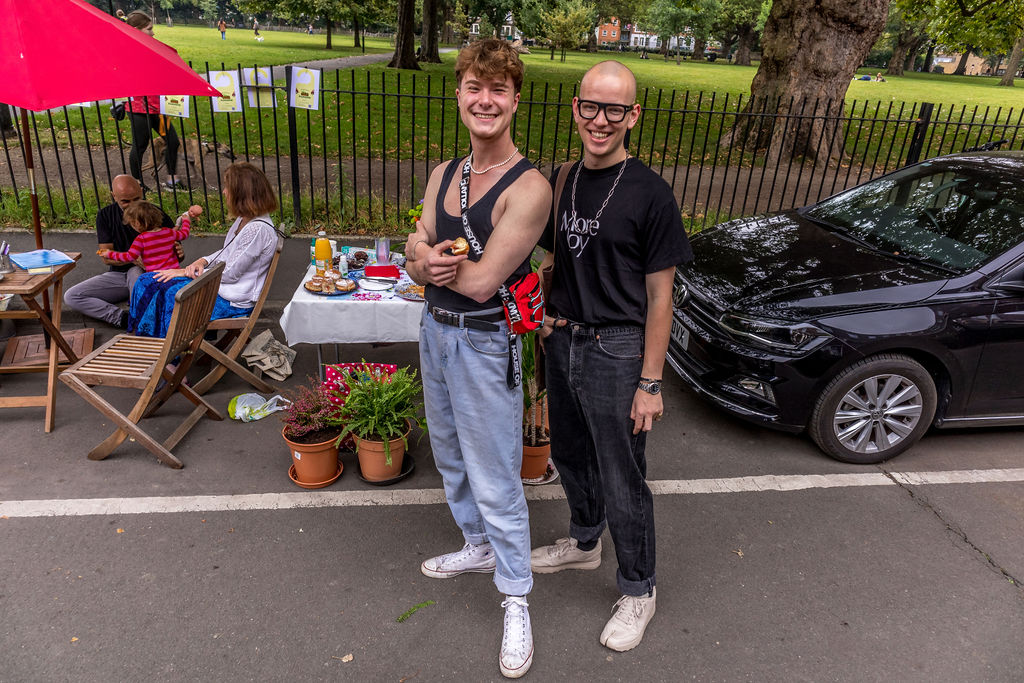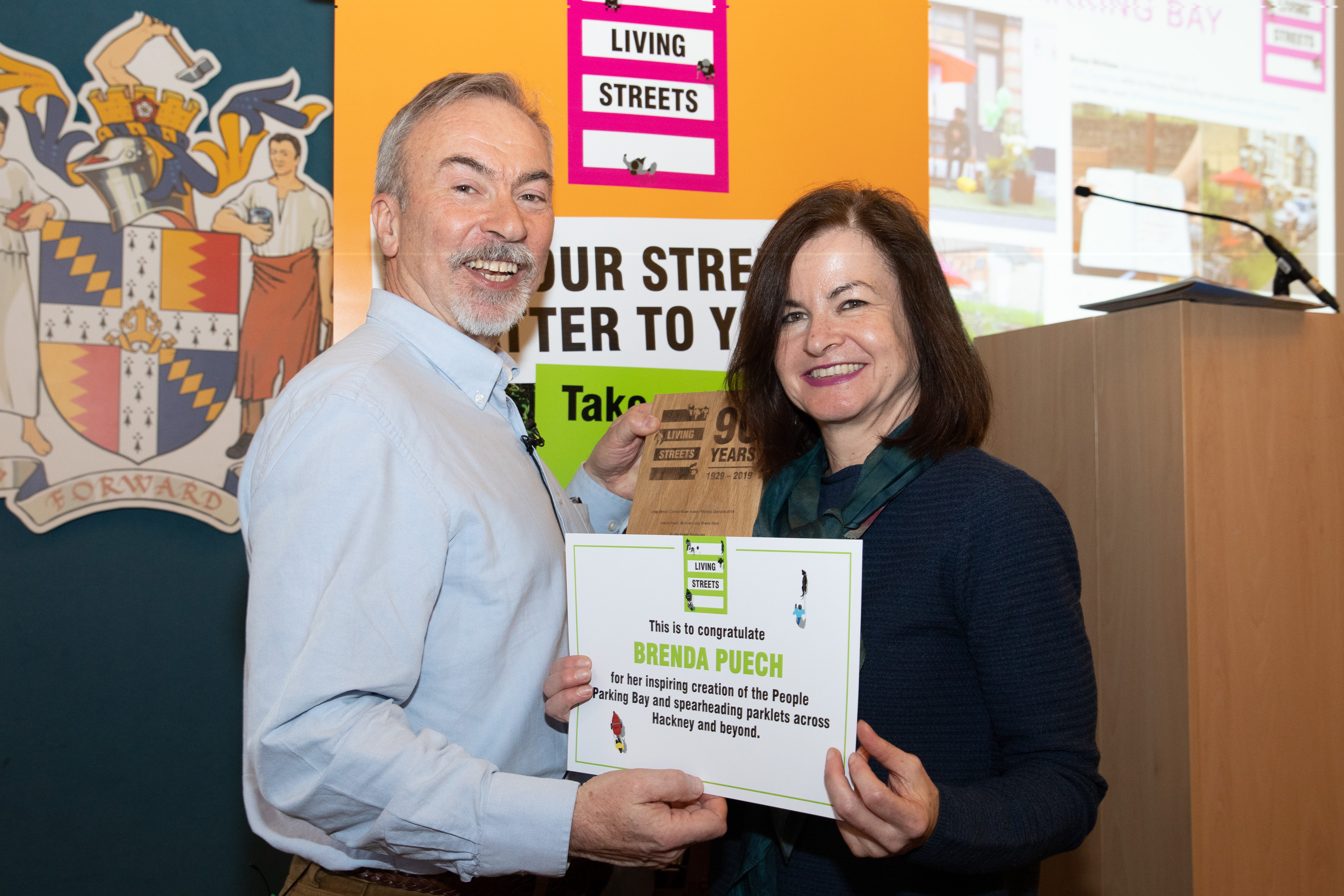Parklets
The time for parklets has arrived!
Small parts of residential streets reclaimed by the community for people to stop, rest and enjoy.
Here we look at the part parklets can play in transforming our streets through the lens of a truly inspirational community campaign.

WHAT ARE PARKLETS?
Parklets are what happens when parking spaces are transformed into a community space - eg with benches, seats, planters, etc. They challenge the idea that kerbside space is only for car storage. A residential parklet can be used both as a resting point for people, and a play area for children.
Residential parklets are not just symbolic reclamations of space. They offer solutions to identifiable issues when it comes to the way our streets are designed.
Providing rest points make it possible for people to walk double the distance they would normally do. There is evidence in the DfT document Inclusive Mobility (2002) that 50m is the maximum distance many mobility impaired people can walk before they need to rest, so having more rest points on residential streets (via parklets) should lead to more people being able to walk longer distances.
There have been many books written on the issue of walking that say that the following make a better walking environment
• having points of interest along the route
• having greenery and planting along a route
• rest points including shelter from weather
• chance of social encounter along the route
Tick, tick, tick, tick!
HOW A LONDON CAMPAIGNER BLAZED A TRAIL FOR PARKLETS IN LONDON
Brenda Puech, who chairs the Living Streets group in Hackney, had campaigned for parklets in her East London borough for years. She applied for a permit to use the parking space outside her home as one, but she was refused.
So, she took matters into her own hands - and set one up anyway in May 2017.
Within days Brenda’s parklet had taken the neighbourhood by storm. Seven visitor books filled up. It received widespread attention on social media and news coverage.
Children were its biggest fans, and a petition to allow the parklet to remain received over a thousand signatures.
Alas, Brenda's direct action was short-lived, with the council insisting the parklet be removed as it didn't meet existing criteria for a parking space.
However, as a direct result of Brenda's tenacious and inspirational activity, the council have changed their policy on the use of parking spaces.
There are now 15 residential parklets planned by the Council within this year, and this may increase depending on the success of the initial pilot scheme.
Brenda was crowned Living Streets' Charles Maher Award - Walking Champion 2019 at this year's National Walking Summit in Birmingham.
The annual prize recognises the efforts of individuals and groups whose efforts get more people walking and cherishing their streets and public space.

